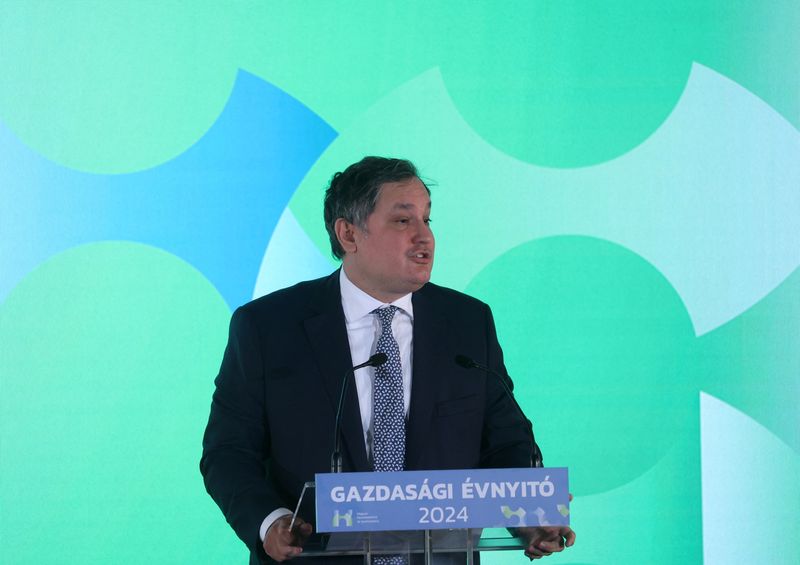By Gergely Szakacs
BUDAPEST (Reuters) -Data suggests Hungary has overcome its inflation crisis, its economy minister said on Wednesday, after the country posted the highest rate of price growth in the European Union last year before it started slowing towards the central bank's target.
Marton Nagy said Prime Minister Viktor Orban's cabinet would still "keep an eye" on inflation, but would also focus on reviving economic growth amid a weaker-than-expected recovery from last year's inflation-led downturn.
The remarks by Nagy, a former central banker, appeared to be at odds with the National Bank of Hungary's assessment, which last month warned policymakers against prematurely declaring victory over inflation and backed a cautious rate policy.
"While many raise questions about our statements that we have managed to push inflation to the ground and it will stay there, this is looking more and more like a certainty based on the latest results and data," Nagy told a business conference.
Nagy said favourable inflation trends were likely to have prevailed in September.
Economists polled by Reuters projected an annual inflation rate of 3.1% last month. The NBH targets 3% inflation, with a tolerance band of one percentage point either side.
The NBH, which has slashed borrowing costs by a combined 1,150 bps in its current cycle, said a careful and patient policy approach was justified and said policymakers should not overreact to rate easing by the U.S. Federal Reserve.

The bank has also flagged a rebound in core inflation to around 5% by the end of 2024 and said its preferred measure of underlying price trends could still exceed 3% next year.
The forint, central Europe's worst-performing currency which has lost more than 4% versus the euro this year, also plumbed its weakest levels per euro this week than at any point since the NBH started cutting rates in May 2023.